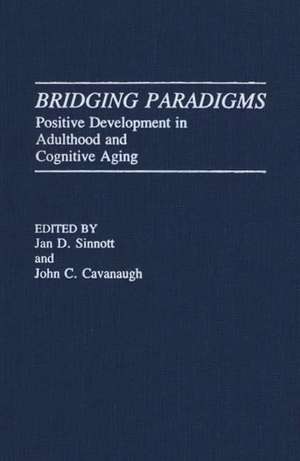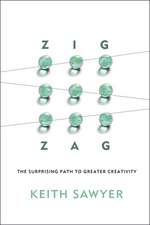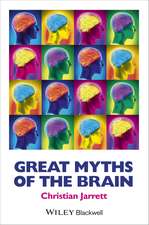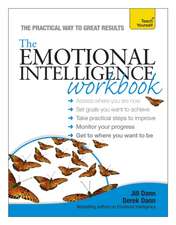Bridging Paradigms: Positive Development in Adulthood and Cognitive Aging
Autor John C. Cavanaugh, Jan D. Sinnotten Limba Engleză Hardback – 29 mai 1991 – vârsta până la 17 ani
Preț: 438.84 lei
Preț vechi: 708.34 lei
-38% Nou
Puncte Express: 658
Preț estimativ în valută:
83.97€ • 87.91$ • 69.48£
83.97€ • 87.91$ • 69.48£
Carte tipărită la comandă
Livrare economică 05-19 aprilie
Preluare comenzi: 021 569.72.76
Specificații
ISBN-13: 9780275936174
ISBN-10: 0275936171
Pagini: 284
Dimensiuni: 156 x 235 x 18 mm
Greutate: 0.58 kg
Ediția:New.
Editura: Bloomsbury Publishing
Colecția Praeger
Locul publicării:New York, United States
ISBN-10: 0275936171
Pagini: 284
Dimensiuni: 156 x 235 x 18 mm
Greutate: 0.58 kg
Ediția:New.
Editura: Bloomsbury Publishing
Colecția Praeger
Locul publicării:New York, United States
Notă biografică
JAN D. SINNOTT is Professor of Psychology and Director of the Center for the Study of Adult Development at Towson State University. / She is a well-known researcher on lifespan cognitive development and publishes frequently on aging, sex roles, and adult development. She edited Everyday Problem Solving (Praeger, 1989) and co-edited Adult Development, Volumes 1 and 2 (Praeger, 1989 and 1990). She is co-editor of an upcoming book entitled Everyday Memory.JOHN C. CAVANAUGH is Professor of Psychology at Bowling Green State University and Director of the Institute for Psychological Research and Application. He is also Director for Behavioral Research at the Northwest Ohio Dementia and Memory Center at the Medical College of Ohio in Toledo. His research interests include: cognitive aging in everyday life, self-evaluations of cognition and stress and coping processes in caregivers of Alzheimer's disease patients. He authored Adult Development and Aging.
Cuprins
On Building Bridges, Developing Positively, and Postformal Thinking Coming of Age: Confessions of a Nonconformist by John C. CavanaughKeeping One's Balance in a Moving System: The Effects of the Multiple Personality Disordered Patient on the Cognitive Development of the Therapist by Judith ArmstrongAge-Related Changes in Visual Processing May Result in Continuing Cognitive Development by Julie R. Brannan and Cameron J. CampNormal Aging and Disease as Contributors to the Study of Cognitive Processing in Aging by Jeffrey W. Elias, Merrill F. Elias, and P. K. EliasReconceptualizing the Nature of Dialectical Postformal Operational Thinking: The Effects of Affectively Mediated Social Experiences by Ronald R. IrwinBridging Paradigms: The Role of a Change Agent in an International Technical Transfer Project by Lynn JohnsonRelativistic Operations: A Framework for Conceptualizing Teachers' Everyday Problem Solving by Diane M. LeeConflict and Cooperation in Adulthood: A Role for Both? by John A. MeachamThe Importance of Interpersonal Relations for Formal Operations Development by John A. MeachamAge Differences versus Age Deficits in Laboratory Tasks: The Role of Research in Everyday Cognition by James M. Puckett, Hayne W. Reese, Stanley H. Cohen, and Leslee K. PollinaInvestigating the Relationship between Cognition and Social Thinking in Adulthood: Stereotyping and Attributional Processes by Jane L. Rankin and Judith L. AllenPerceived Problem Relevancy and Its Relationship to Reasoning on Everyday Problems by Richard A. Sebby and Dennis R. PapiniLimits to Problem Solving: Emotion, Intention, Goal Clarity, Health, and Other Factors in Postformal Thought by Jan D. SinnottWhat Do We Do to Help John? A Case Study of Postformal Problem Solving in a Family Making Decisions about an Acutely Psychotic Member by Jan D. SinnottThe Influences of Formal versus Informal Education on Planning Skills: A Cultural Perspective by Fabienne TanonExpert Systems in Nature: Spoken Language Processing and Adult Aging by Arthur Wingfield and Elizabeth A. L. StineAuthor IndexSubject Index

















